FORT POLK, La. -- Class 81, 162nd Infantry Brigade's first graduating class of combat advisors, graduated in three parts in October. The class was comprised of teams from the Navy, Air Force and Army National Guard.
The Sailors of Class 81 concluded their 60-day course of instruction under the auspices of 1st Battalion, 353rd Infantry Regiment, 162nd Inf Bde Oct. 16 with a capstone event that included a tactical exercise. The exercise consisted of convoy patrols and engagements with roleplayers representing the Afghan National Army and Afghan populous.
"This was the first time they had been exposed to the ground tactics," said Capt. Jonathan Silk, commander, A Company, 1-353rd and small group advisor for Class 81. "They are by no means experts but the capstone had the desired effect -- they came out of it confident in themselves.
The event was designed to overwhelm them, and they did get overwhelmed in the last village, but they handled themselves well."
The Navy team, including three reservists and five active-duty Sailors, met with village elders, fielded questions in mock media interviews and handled local mobs.
"We try to tailor each of these scenarios to things they could possibly do while deployed," said Maj. John Harrison, 162nd assistant operations officer. "We're trying to stress them to get them to act as a team. If they don't, they will fail -- during this event and while they're deployed. We're trying to give them as many tools as we can before they deploy."
The team made great progress during their time with the 162nd, but no team can ever be perfect. "This event highlighted the areas that the team still has to work on," said Master Sgt. Ronny Phillips, 162nd S3 training NCO.
Lt. Col. Paul Horlacher is the director of the 162nd Brigade's advisor academy and leads the directorate of cultural influence and counter-insurgency. "We taught Class 81 for two weeks," he said. "They are a spirited group -- they have a lot of energy and are taking their training seriously.
"In the classroom, they asked a lot of questions and internalized the training we gave them. Now we're seeing that they carry the same attitude to the challenges of the tactical scenarios."
The Sailors applied their lessons ably in the field. During the first scenarios they were jumpy and aloof from the villagers, but as the event progressed they learned to work with the Afghan army roleplayers and utilize them in crowd control. "It was rewarding to see it all come together," said Silk. "We gave them tips after the first engagement and they learned from it -- that shows they were listening and trying. One thing we stress in our training is that they must put an Afghan face on everything. If any physical force has to be used, ask the Afghan authorities to do it. In that way, Afghans solve Afghan problems."
"The 162nd did a good job of surprising us during the capstone event," said Lt. Cmdr. Brian Gummin, commander of the Navy team. "It wasn't what I expected -- there was a lot of confusion. It was a good experience to go through the whole process of receiving an operations order, coordinating resources and handling subsequent changes to the initial order. It built on all of our individual training, from the basics of mounted combat patrol through leader engagements. The capstone was a stressful learning environment, but we came out of it feeling like we can perform our tasks as a team."
"These Sailors came here and met each other for the first time," said Lt. Col. David Wood, commander, 1-353rd. "They went through the 'form, storm and norm' phases of team building. They formed, had a little storm and now they're normalizing. They've come full circle."
The 162nd has learned lessons of its own while training Class 81, but has received high marks from the students. "This being the first full class to go through, we understood that there would be some kinks," said Phillips, referring to logistical hiccups in the training. "Soon everything will be more concrete."
"We have received a lot of positive feedback from the teams in training," said Wood. "That's the true test: what the advisors think about the training, logistics and quality of life."
"We've enlarged the brigade's capabilities to support the advisor teams," said Horlacher. "The other services are noticing and jumping on board. We try to stay relevant and provide our students the most up-to-date training possible."
Only one of the A Co small group advisors had experience training combat advisors at Fort Riley, Kan., and the trainers have different military occupation specialties. "Everyone's experience tied together well," said Silk.
The 162nd has changed the way combat advisors are trained. "At Fort Riley, one battalion would provide all of the training for a team," explained Wood. "Here, we're providing specialty-based training by committee. Each battalion has a set amount of training, maintains its own equipment and grooms subject-matter-experts.
"We were the 'home room' for Class 81. They live in our battalion area, we take care of them, keep them informed of their training schedule and provide some of their training events."
1-353rd also has teaching responsibilities for each class. "We do the ranges, foreign weapons and nuclear, biological and chemical training," Wood said. "The 'form, storm and norm' also applies to new units when they stand up. My battalion has experienced that, but so has the brigade."
"The 162nd has done an exceptional job training and preparing us for our combat advisor mission," said Gummin. "The hiccups we had in our training were merely logistical. We got four months of training in a two-month time period. It was intense and rewarding -- we're glad it's over and are ready to go do our mission.
"We're as ready as anyone can be. The environment over there is dynamic and you can only prepare so much. We have a good foundation of knowledge on the culture and tactics."
"It was helpful that if I wanted to work on something after hours to build proficiency, our trainers were always available," said Senior Chief Petty Officer Patrice Frede. "The attitude of 'mentor the mentors' and professionalism of our instructors helped us stay positive."
The joint nature of the training environment was also a factor for Class 81. "We were told to prepare for culture shock when we arrive in Afghanistan," said Gummin. "My first thought was 'I bet it will be an awful lot like the culture shock we've had working with the Army.' The Army and the Navy have a lot of old traditions and their own ways of doing things."
Frede said the transition to Army training was smooth. "Everyone understood that the Army environment was new to us and ground combat and the tactics that go along with it are new as well."
As the Sailors of Class 81 prepare to deploy to Afghanistan, they now have the confidence needed to complete their jobs. "A Co helped us form into a team that works well together, even in highly stressful situations," said Gummin. "We learned a lot of tactics and procedures that culminated in the capstone. I'm happy with the team I'm taking over there."
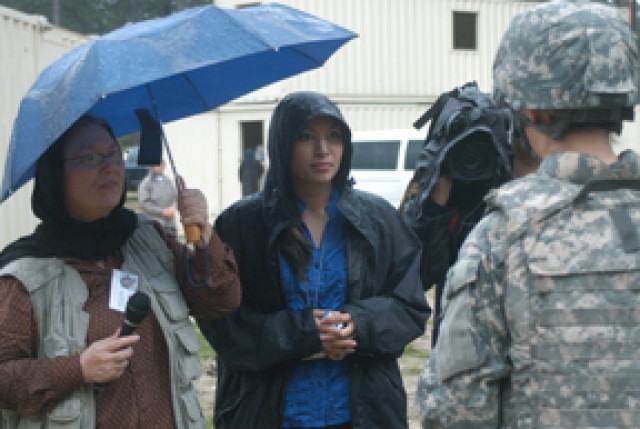
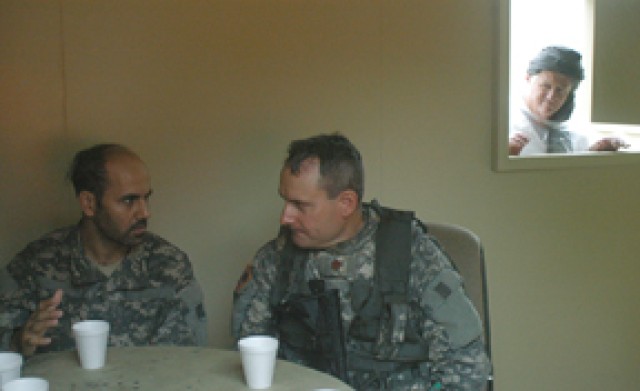
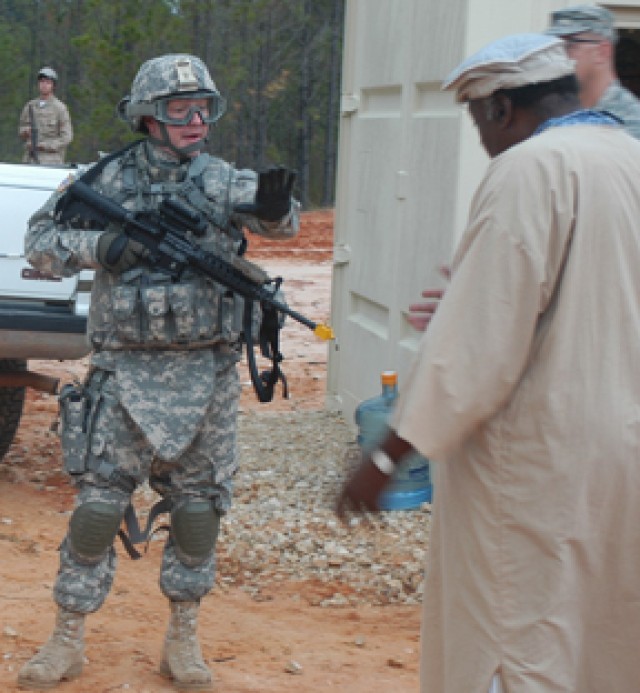
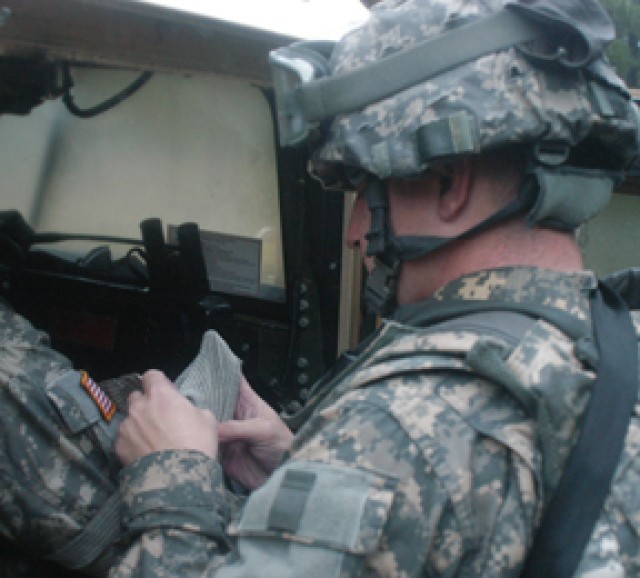

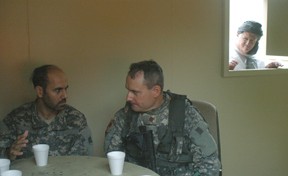
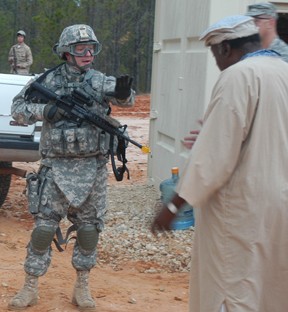
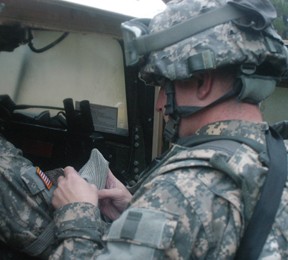
Social Sharing